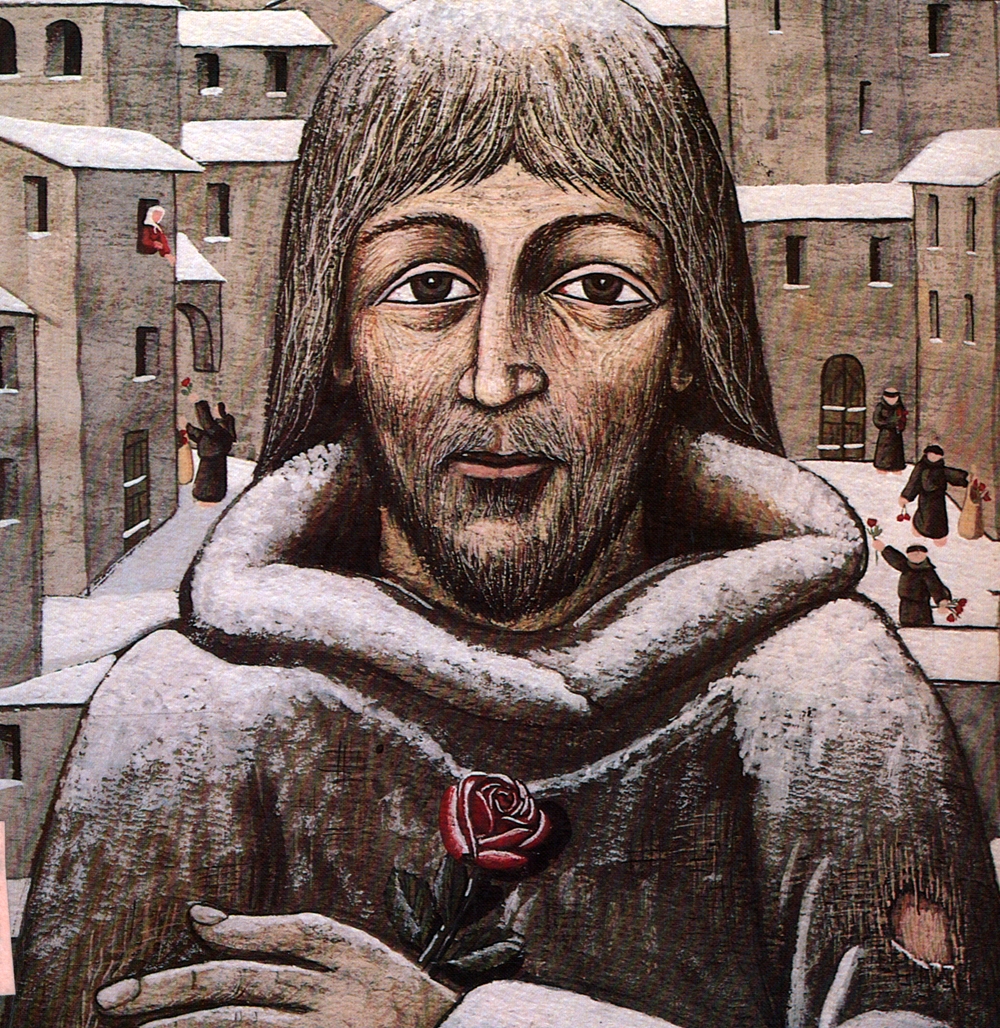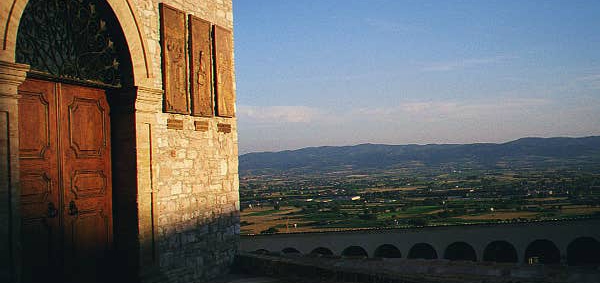This Hermitage Speaks

Carlo Carretto was a Little Brother of Jesus, a religious community inspired by the life of Charles de Foucauld. With a poetic style, he also wrote several books that explored his desire to live a contemplative life in the world.
One of those books was about St. Francis of Assisi (I, Francis), and Carretto in fact died on the saint’s feast day (October 4) in 1988. What follows is an excerpt from the preface in which Carretto reflects on his time spent in a hermitage favored by St. Francis, a cave near the Italian town of Narni:
I sought out this hermitage because it is one of the special places of the Franciscan world, where the Saint sojourned on repeated occasions, and where all blends together in a perfect oneness. Forests, bare rock, the architecture, poverty, humility, simplicity, and beauty, all go together to form one of the masterpieces of the Franciscan spirit—an example to the centuries of peace, prayer, silence, ecology, beauty, and the human victory over the contradictions of time.
When we behold these hermitages, abodes of men and women of peace and prayer and joyous acceptance of poverty, we have the answer to the anguished conflicts that torment our civilization.
You see, these rocks say to us, peace is possible.
Do not seek for luxury when you build your houses, seek the essentials. Poverty will become beauty then, and liberating harmony—as you can see in this hermitage.
Do not destroy forests in order to build factories that swell the ranks of the unemployed and create unrest; help human beings to return to the countryside, to learn again to appreciate a truly well-turned object, to feel the joy of silence and of contact with earth and sky.
Do not hoard up money—inflation and greedy people lie in ambush for you; instead, leave the door of your heart open for a dialogue with your brother or sister, for service to the very poor.
Do not prostitute your labor fabricating things that last half a season, consuming what little raw material you have left; but make pails like the one you see here at this well—it has been drawing its water for centuries and is still in use.
The ill you speak of consumerism is a cover. You fill your mouth with words in order to stifle a bad conscience. Even as you speak, you are consumerism’s slaves, without any capacity for innovation and imagination.
And then . . .
Unburden yourselves of your fear of your brothers and sisters! Go out to meet them unarmed and meek. They are human beings too, just like you, and they need love and trust, even as you.
Do not be concerned with “what you are to eat and with what you are to drink” (Matt. 6:25); be calm, and you shall lack nothing. “Set your hearts on his kingdom first, and on his righteousness” (Matt. 6:33), and everything else will be given to you for good measure. “Each day has enough trouble of its own” (Matt. 6:34).

Yes, this hermitage speaks. It speaks and says brotherly and sisterly love is possible.
It speaks and says that God is our Father, that creatures are our brothers and sisters, and that peace is joy.
All you have to do is will it. Try it, brothers and sisters, try it, and you will see that it is possible.
The Gospel is true.
Jesus is the Son of God, and saves humankind.
Nonviolence is more constructive than violence.
Chastity is more pleasurable than impurity.
Poverty is more exciting than wealth.
Try to think about it, sisters and brothers. What an extraordinary adventure lies here before us. If we put Francis’s project into execution we shall be escaping the atomic apocalypse.
Is it not always this way? God proposes peace.
Why not try it?
